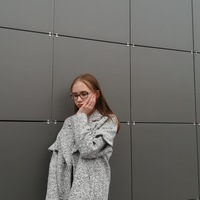
1)Wir fahren zu (der Bahnhof) mit(der Bus) 2)Die Studenten gehen in (das Institut) zu (die
Prufung) 3)Der Vater kommt von (die Arbeit) gewohnlich um funf Uhr 4) Hinter(das Haus) meiner Groseltern ist ein groser Obstgarten 5) Unweit(die Schule) liegt ein schoner Park 6)In (die Ferien) bleibe ich in ( die Stadt) 7) Wir gehen durch ( der Park) und kommen zu ( das Theater) 8) Unsere Datscha ist nicht weit von ( die Stadt) 9) Ich hange die Uhr an ( die Wand) uber (das Bild) 10) Die touristen machen eine schone Rundfahrt durch ( die Stadt) Помогите 0
0
 0
0
Ответы на вопрос
 Внимание! Ответы на вопросы дают живые люди. Они могут содержать ошибочную информацию, заблуждения, а также ответы могут быть сгенерированы нейросетями. Будьте внимательны. Если вы уверены, что ответ неверный, нажмите кнопку "Пожаловаться" под ответом.
Внимание! Ответы на вопросы дают живые люди. Они могут содержать ошибочную информацию, заблуждения, а также ответы могут быть сгенерированы нейросетями. Будьте внимательны. Если вы уверены, что ответ неверный, нажмите кнопку "Пожаловаться" под ответом.

Sure! I can help you with that. It looks like you have a series of sentences in German that involve prepositions and locations. I'll provide a detailed translation and explanation for each sentence:
1) Wir fahren zu (der Bahnhof) mit (der Bus). Translation: We are going to the train station by bus. Explanation: In this sentence, "zu" is used to indicate the destination, which is the train station. "Mit" is used to indicate the means of transportation, which is the bus.
2) Die Studenten gehen in (das Institut) zu (die Prüfung). Translation: The students are going to the institute for the exam. Explanation: In this sentence, "in" is used to indicate the location, which is the institute. "Zu" is used to indicate the purpose, which is the exam.
3) Der Vater kommt von (die Arbeit) gewöhnlich um fünf Uhr. Translation: The father usually comes from work at five o'clock. Explanation: In this sentence, "von" is used to indicate the origin, which is work. "Gewöhnlich" means usually, and "um" is used to indicate the time, which is five o'clock.
4) Hinter (das Haus) meiner Großeltern ist ein großer Obstgarten. Translation: Behind my grandparents' house, there is a large orchard. Explanation: In this sentence, "hinter" is used to indicate the location, which is behind the house.
5) Unweit (die Schule) liegt ein schöner Park. Translation: Not far from the school, there is a beautiful park. Explanation: In this sentence, "unweit" is used to indicate the proximity, which means not far. "Liegt" means lies, and "ein schöner Park" means a beautiful park.
6) In (die Ferien) bleibe ich in (die Stadt). Translation: During the holidays, I stay in the city. Explanation: In this sentence, "in" is used to indicate the time frame, which is during the holidays. "Bleibe" means stay, and "in die Stadt" means in the city.
7) Wir gehen durch (der Park) und kommen zu (das Theater). Translation: We walk through the park and arrive at the theater. Explanation: In this sentence, "durch" is used to indicate the movement through the park, and "zu" is used to indicate the destination, which is the theater.
8) Unsere Datscha ist nicht weit von (die Stadt). Translation: Our dacha is not far from the city. Explanation: In this sentence, "nicht weit von" means not far from, and "die Stadt" means the city.
9) Ich hänge die Uhr an (die Wand) über (das Bild). Translation: I hang the clock on the wall above the picture. Explanation: In this sentence, "an" is used to indicate the attachment to the wall, and "über" is used to indicate the position above the picture.
10) Die Touristen machen eine schöne Rundfahrt durch (die Stadt). Translation: The tourists take a beautiful city tour. Explanation: In this sentence, "durch" is used to indicate the movement through the city.
I hope this helps! Let me know if you have any further questions.
 0
0
 0
0
Топ вопросов за вчера в категории Немецкий язык
Последние заданные вопросы в категории Немецкий язык
-
Математика
-
Литература
-
Алгебра
-
Русский язык
-
Геометрия
-
Английский язык
-
Химия
-
Физика
-
Биология
-
Другие предметы
-
История
-
Обществознание
-
Окружающий мир
-
География
-
Українська мова
-
Информатика
-
Українська література
-
Қазақ тiлi
-
Экономика
-
Музыка
-
Право
-
Беларуская мова
-
Французский язык
-
Немецкий язык
-
МХК
-
ОБЖ
-
Психология
-
Физкультура и спорт
-
Астрономия
-
Кыргыз тили
-
Оʻzbek tili
















